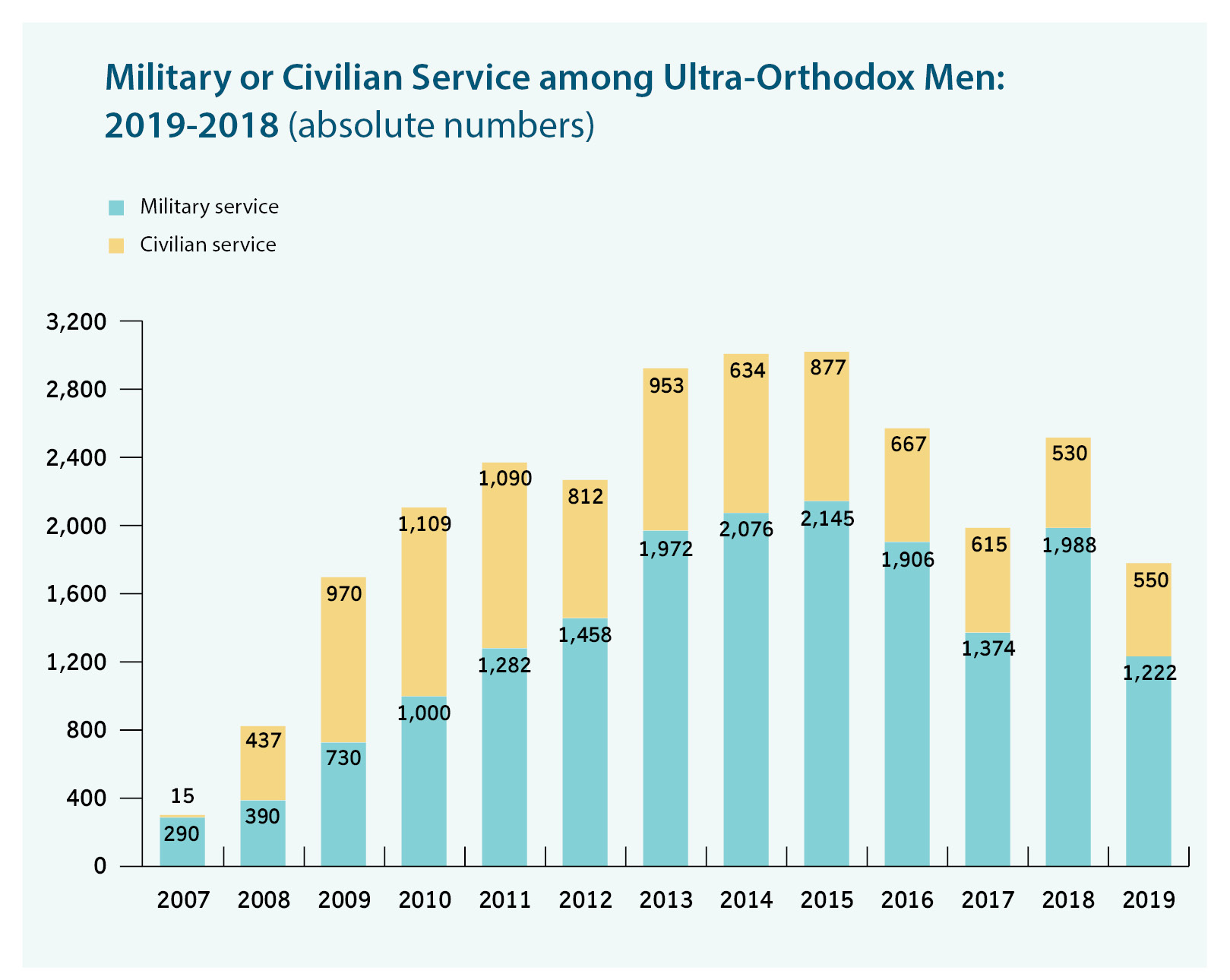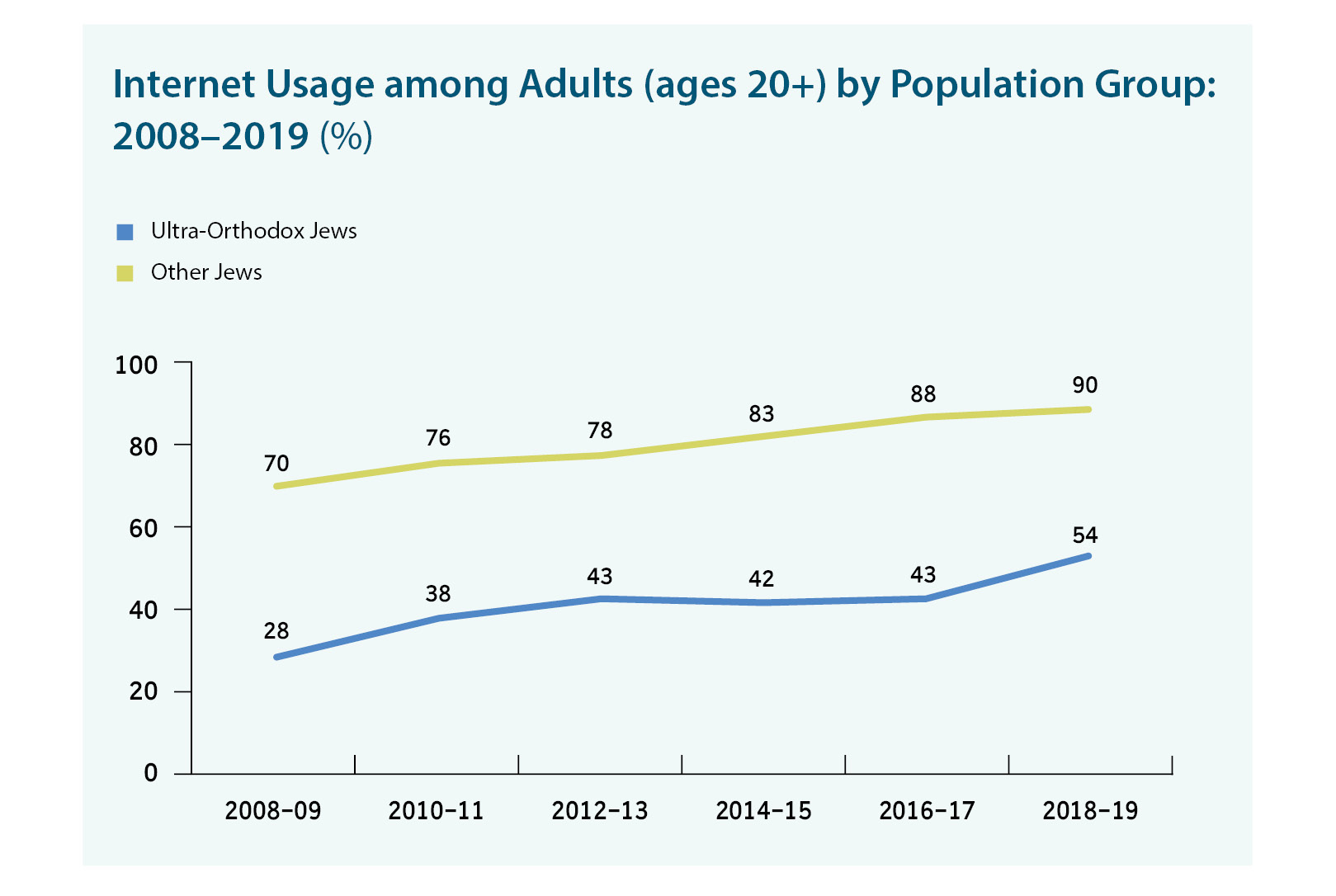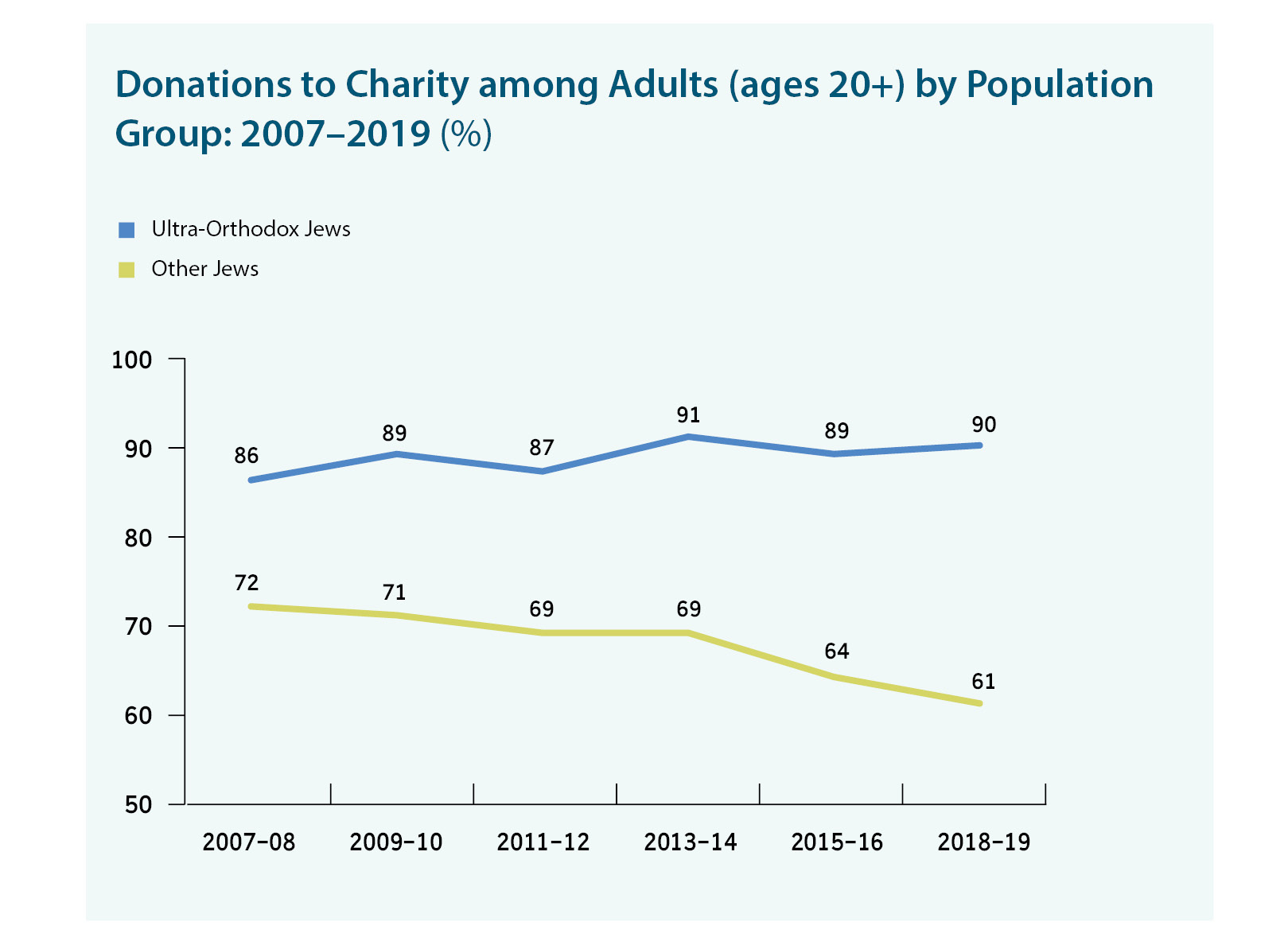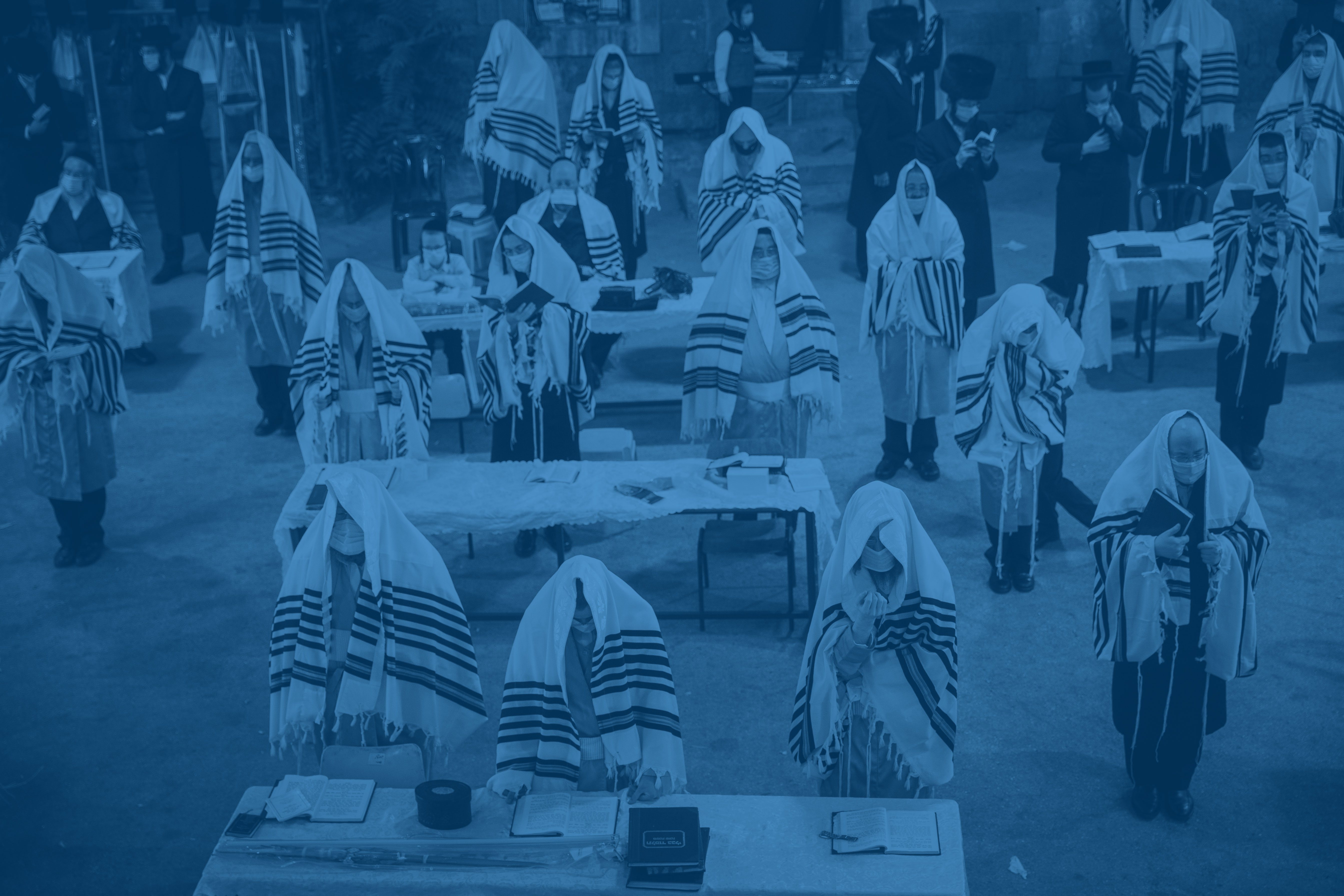Standard of Living
Chap. 5
Lifestyles: Ultra-Orthodox lifestyles in Israel are in a state of constant flux, and can teach us much about the relations between ultra-Orthodox society and general Israeli society.
Clearly, significant differences remain between the ultra-Orthodox and the rest of the Jewish population in terms of military and civilian service (only 1,722 ultra-Orthodox men served in either in 2019, that is—only 25% of graduates from the ultra-Orthodox education system); rates of computer usage (61% in the ultra-Orthodox population compared with 79% of the rest of the Jewish population); rates of internet usage (54% versus 90%, respectively), and vacationing abroad (16% versus 51%, respectively). However, the rising rates in each of these areas of life clearly indicate a growing trend of integration of ultra-Orthodox society into general Israeli society.
One of the factors contributing to this trend is the increasing entry of both ultra-Orthodox men and ultra-Orthodox women into higher education and the workforce. This results in more disposable income, higher awareness of consumer and leisure culture, and a more "modern" discourse in the Haredi community's growing middle class.


Charity: Against the backdrop of these findings, it is interesting to follow the changes among the ultra-Orthodox regarding volunteering activity and donations to charitable causes, which are much more common in ultra-Orthodox society than in the rest of Jewish society in Israel (39% of ultra-Orthodox Jews volunteer, compared with 24% of other Jews, while 90% of ultra-Orthodox Jews aged 20+ made a sizable donation in the last year, compared with 61% of other Jews).

Family Life: This chapter also examines t issues relating to family life, and reveals that ultra-Orthodox Israelis have more conservative views on the status of women, raising children, division of labor between spouses, and the structure of the nuclear family. Regarding spousal relationships, the ultra-Orthodox—both men and women--believe that the most important factors for successful relationships are respect and appreciation (87%, compared with 77% of other Jews), faithfulness (76%, compared with 69%), and being supportive and attuned to the other's needs (63%, compared with 55%). On the other hand, they attribute less importance to factors such as love (31%, compared with 44% of other Jews), sex (6%, compared with 12%), and financial security (6%, compared with 16%).
Voting Patterns: We analyzed voting patterns in Knesset elections for the ultra-Orthodox parties--Shas and United Torah Judaism-- to assess their political power, though it should be noted that some Shas voters are not ultra-Orthodox, but rather--traditional or National Religious Jews, including an analysis of voting patterns by area of residence
The overall share of the vote garnered by United Torah Judaism and Shas rose between 1992 and 2020 from 8.2% to 13.7%. Furthermore, there were changes in the geographical distribution of voters for these parties, seen in the rise in the percentage of voters residing in the ultra-Orthodox suburbs, and the decline in the percentage of voters in Jerusalem and Bnei Brak.
Will the residential distribution and the characteristics of ultra-Orthodox communities in Israel change due to economic and social processes, or will they stay the same despite these processes? Time will tell. It Is worth noting that the COVID-19 pandemic has brought the advantages of the communal character of ultra-Orthodox society to the fore, but also made clear the need for every ultra-Orthodox home to have a computer and internet access. Once tabooed or seen as luxuries, these have become essential items for day-to-day living, whether for work, education, keeping in contact with family and friends, or studying Torah. This issue is examined further in Chapter 6 of the Report.













